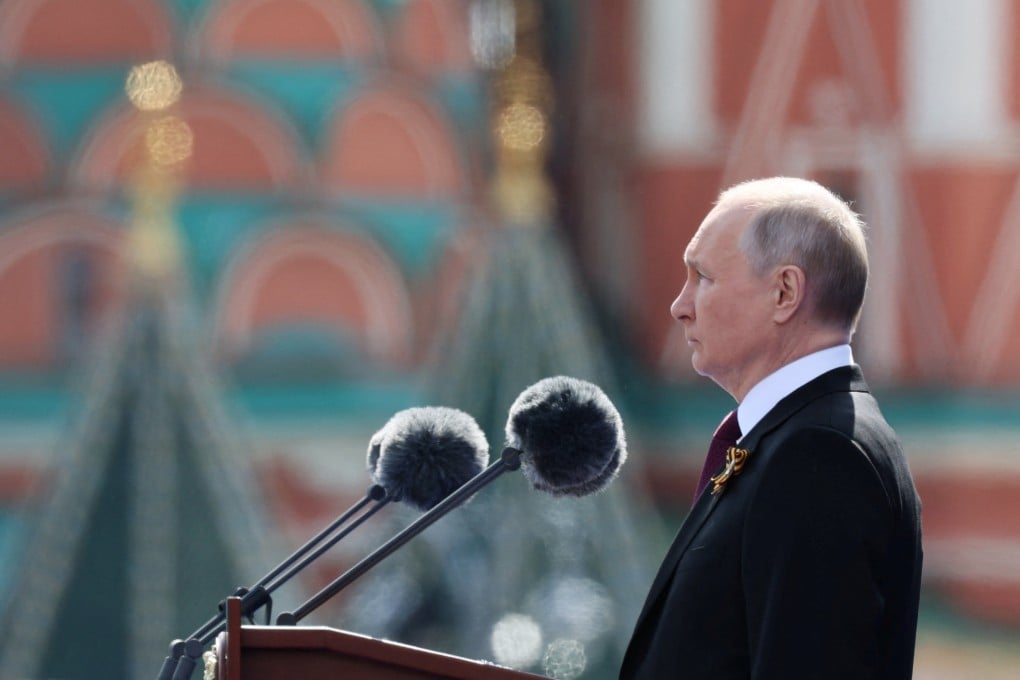Putin tells Victory Day parade ‘real war’ unleashed on Russia
- Russia celebrates 1945 victory over Nazi Germany with Moscow military parade
- President Vladimir Putin says West’s ‘untamed ambitions’ to blame for conflict in Ukraine; Germany says ‘show of force’ will not intimidate EU, which should enlarge

Russian President Vladimir Putin on Tuesday told his country’s Victory Day parade on Moscow’s Red Square that “a real war” has been unleashed against Russia by the West’s “untamed ambitions”, soon after the Kremlin’s forces rained cruise missiles on Ukrainian targets.
“Today civilisation is once again at a decisive turning point,” Putin said at Moscow’s annual commemorations celebrating the defeat of Nazi Germany in World War II. “A real war has been unleashed against our Motherland.”
Since Russia invaded its neighbour in February last year, Putin has repeatedly framed the war in Ukraine as a proxy conflict with the West.
The Kremlin’s official narrative has painted a picture of an existential conflict with the West, which in Moscow’s view is merely using Ukraine as a tool to destroy Russia, rewrite its history and crush its traditional values.
That version of events has dominated Russian state media coverage of the war.
In his speech, Putin insisted that the West’s “untamed ambitions, arrogance and impunity” are to blame for the conflict.
